These tools provide support in implementing sustainability within different topics.
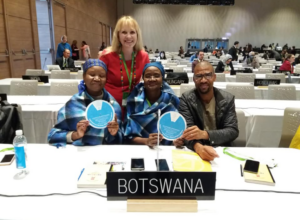
The four dimensions of sustainable development (ecological, economical, social, and cultural) have been divided into eight categories of questions that are interconnected. In the wheel chart you will find 24 questions to help to analyse and develop the current situation.
The Wheel Chart of Sustainability has been spread around the world in in 18 different languages. Learn more and print our your own copy from the website of the Finnish Heritage Agency.
Read more and print out the Wheel Chart here.
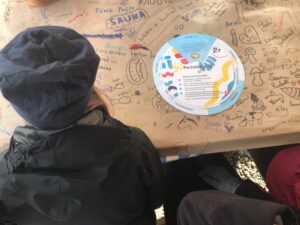
Print the tool out to be used in classrooms or workshops with any kinds of groups. The tool is already available in 18 different languages.
The Spinner of Living Heritage has been created by the Finnish Heritage Agency and the Association of Cultural Heritage Education as part of the LIVIND project.
Dialogue Cards, developed by Arts Promotion Centre Finland, are a tool designed to open the concepts of cultural diversity and sustainable development and to promote equality and sustainability in arts and culture services.
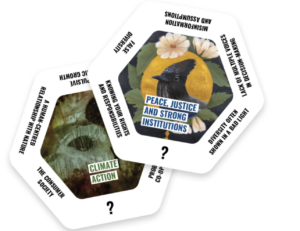
Dialogue cards are designed to be used in workshops. The facilitator's manual that comes with the cards provides all the necessary information and materials for organising the workshops
The Seven Keys is a workshop for integrating the cultural dimension in the localisation of the SDGs. It is designed by the UCLG (The World Organisation for United Cities and Local Governments).
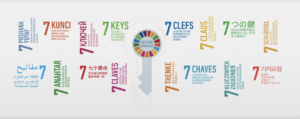
The Seven Keys is especially suitable for cities, municipalities and regions that are not familiar in analysing the relation between and the implementation of the SDGs with local Cultural Policies. After the workshop, all participants will have a shared understanding of what the SDGs are and how can they be localized from different perspectives, as well as a concrete list of achievable actions that will contribute significantly to the localization of SDGs in their municipalities.
A toolkit for community planning for sustainable development through intangible cultural heritage, made by project HIPAMS - Heritage Sensitive Intellectual Property and Marketing Strategies.
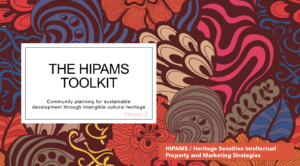
A sustainability star model to guide the sustainability actions of museums and help them develop sustainability management.
Created by the research project Culture for the Planet and conducted at the University of Lausanne, Switzerland.
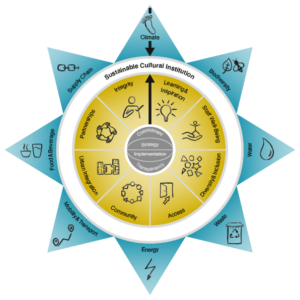
The CC Tools is a free carbon calculator designed to help organisations to record, measure and understand the impacts of their venue, office, tour, project, event or festival. They allow users to track a range of different impact areas including energy use, water consumption, waste, travel, freight and materials.
The tools also offer a Beyond Carbon survey which allows organisations to record what they do around sustainability, going beyond the basic carbon numbers. This survey is designed to double up as a checklist and encourage organisations to take further environmental actions in areas they may not have explored before.
The tool is developed by Julie’s Bicycle for the creative community.
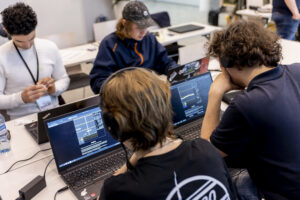
Ki Culture provides programs and tools to make culture sustainable and position the sector as leaders for sustainability globally. They break down current models and silos and work holistically to make sustainability achievable and sustainable.
Ki Culture is an international nonprofit working to unite culture and sustainability.
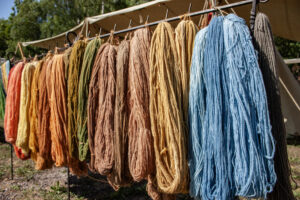
At the heart of this resource is the belief that anyone can be an advocate. The Advocacy Guide provides tips to strengthen your advocacy to a range of audiences, including peers, workplace leaders, and policymakers. It can be used by cultural heritage professionals, students, volunteers, and anyone else with passion for the role of culture in climate action.
Authors behind the Resource are: Climate Heritage Network Working Group 1.
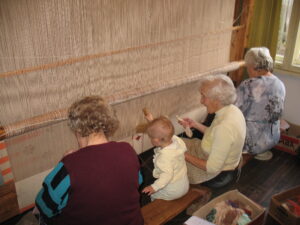
Finnish Innovation Fund Sitra publishes annually trend cards describing the changes that contribute to megatrends. They help to stretch your thinking, brainstorm new ideas and envision what the future could be. For tips on using the cards, see the instruction card. Sitra’s website also contains the digital trend cards and templates for using them.
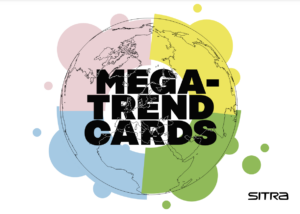
Diversity and inclusion self-assessment tool helps businesses and other organisations to identify different aspects and practices of diversity and inclusion work, and to see which areas are the most important and should be developed further in their own organisation.
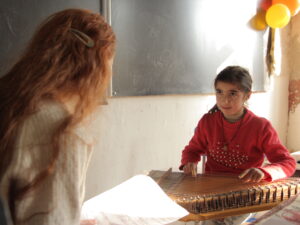
The tool was developed as a part of an EU funded project All in for Equality. The project was coordinated by the Finnish Ministry of Justice and funded by the Rights, Equality and Citizenship programme of the EU. Corporate responsibility network FIBS was a project partner.